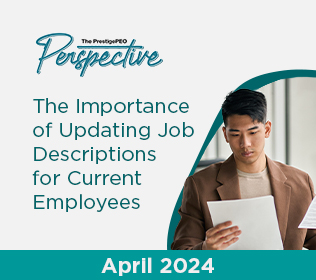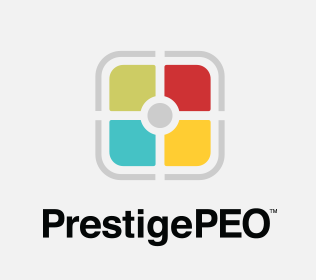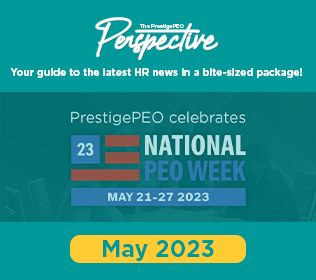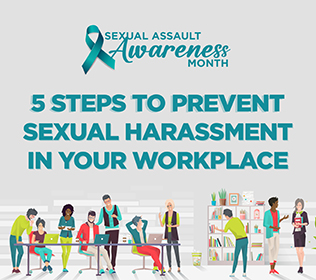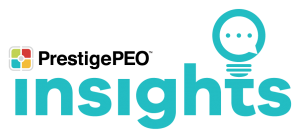
The latest news relevant to you and your business


Are your job descriptions up to date?
Do you have updated job descriptions for your active employees? Yes, you post job descriptions for open positions, but what about your employees who are currently working for you? Job descriptions evolve as employees settle and grow into their positions, needs change, and projects evolve. Even though your employee may take on new responsibilities, you may not have taken the time to update their job description. Detailed job descriptions provide the employee with clarity on their responsibilities. It’s also a valuable tool for managers to measure their team members’ performance.
Here are some reasons why you should have updated job descriptions:
- Job descriptions are useful tools for communicating clear expectations regarding the tasks an employee is responsible for performing.
- Job descriptions are helpful when creating job postings during recruitment if the position becomes open again.
- Job descriptions also:
- Identify skills and abilities required for a position.
- Describe job duties.
- Define necessary qualifications.
- Provide a framework for determining an employee’s performance.
- Support decision for non-exempt vs. exempt position status.
- List the essential job functions that can aid in the interactive process when reasonable accommodations are discussed.
- Can be used when determining whether an employee can work light duty after a work-related injury.
PrestigePEO is here to help! Your HR Business Partner can partner with you to create or update your existing job descriptions. Reach out to us if you need assistance.

ENROLL TODAY:
Plum Benefits and Working Advantage are now PrestigePEO Perks!
We have an exciting announcement to share with your employees – Plum Benefits and Working Advantage are now PrestigePEO Perks, and the program has new discounts and features. For your convenience, we have prepared a description of the program that you can copy and paste for your team members.
Plum Benefits and Working Advantage are now PrestigePEO Perks! Register today to maintain access to your savings marketplace, your one-stop shop for exclusive and convenient savings on the products, services, and experiences you know and love.
It’s cost-free and easy to enroll. Just click PrestigePEO Perks https://prestigepeo.savings.workingadvantage.com and begin saving today on NEWLY added items like cruises, clothing, fitness memberships, and groceries! Plus savings on electronics, appliances, theme parks, hotels, flights, movie tickets, rental cards, gift cards, cars, flower deliveries, special events, and more! And with FunLife Rewards, you can earn points on eligible purchases and then redeem those points on future deals!
Please note: if you had a previous Plum Benefits or Working Advantage account, you must re-register for a new account.

Webinar TOMORROW:
Aging Well and Staying Independent
As the baby boomer generation ages, caregiving becomes increasingly important. As early as 2030, there will be more seniors in need of care than ever, and many younger adults are unprepared. In this webinar from Motivity Care, we’ll learn about the caregiving challenge as demand for these services increases.
Topics discussed will include:
- The challenge and impact of caregiving on individuals
- The growing number of caregivers and the need for services
- How caregiving impacts the workforce
The webinar will be offered tomorrow, Wednesday, April 17, 2024, at 10:00 am. Register at the button below.
Can’t join us? Plan to view our webinar broadcast post-event (posted here) or view our latest Motivity Care benefit.

New Manager Self-Service features are coming soon!
We’re happy to share some exciting news – our PrestigePRO Worksite Manager features are becoming more accessible. Starting in May, PrestigePEO will roll out worksite manager features within the Employee Self-Service Portal. These enhancements will enable managers to access their manager capabilities without having to log into a separate account.
Below are just some of the manager tools you can expect to see in the Employee Self-Service Portal.
- New hire without social security number (SSN) – for onboarding clients only
- Payroll approval
- Paid Time Off (PTO) calendar
- …and more!
The rollout will happen in phases. An alert will be sent out as updates become available. Managers will then see new features as they click on the Manager tab in the Employee Self-Service portal.
We are excited to offer this streamlined process so that managers can perform their duties more efficiently. If you have any questions, please reach out to Joe Dodgson, Chief Information and Technology Officer (jdodgson@prestigepeo.com), or Kerry Wallace, Business Analyst/ QA Engineer (kwallace@prestigepeo.com).

Special Enrollment Opportunity with MassMutual
PrestigePEO is now offering a special enrollment opportunity for our voluntary benefit options! These include include MassMutual Whole Life Insurance, Monument Online Alcohol Counseling, and Motivity Care. The special open enrollment period will take place from May 1 through June 14. If you do not want your employees to receive information about this special enrollment, please opt out here by April 24.
We will be hosting informational webinar sessions led by John Manning, Insurance & Financial Advisor from MassMutual. We will email you soon with further details and registration links.

Important Compliance Alerts
Stay informed about regulatory changes affecting your business. Some alerts may apply only to clients with businesses or employees in particular states—each alert will specify this. Please click on the links below for further details.
- Recent Pay Transparency Legislation
- NLRB’s Joint Employer Rule Struck Down Days Before It was Slated to Take Effect
- 2023 EEO-1 Component 1 Data Collection is Due no later than June 4, 2024
- Oregon Bill SB 1515 Signed into Law Amending Family Leave Laws
- New York City Considers its Own Ban on Non-Compete Agreements
- New York City Employers Must Distribute Workers’ Bill of Rights by July 1, 2024
- Proposed New York Legislation Seeks to Strengthen AI Bias Audit Law and Add Other Workplace Protections
Recent Pay Transparency Legislation
Employers with a multi-state workforce should be aware of the recent legislative trend to address salary inequities through pay transparency laws at the state and local levels. The patchwork of laws requiring salary disclosure remains ever-evolving, containing various mixes of the following elements:
- Disclosure of benefits in addition to salary.
- Disclosure of salary information in job postings versus upon request by employee/applicant.
- Disclosure of salary for internal job movements as well as external postings.
- Annual pay data reporting to state agencies.
As of April 2024, the following states require salary information to be disclosed in job postings: Colorado, California, Washington, New York, and Hawaii. A law requiring disclosure of the salary range in all job listings goes into effect in Washington, D.C. on June 30, 2024. Illinois’ salary disclosure in job postings law goes into effect January 1, 2025. Jersey City, NJ also requires disclosure of salary information in job postings. Connecticut, Rhode Island, and Maryland require employers to provide pay ranges to job applicants upon the applicant’s request. Nevada requires employers to provide a pay range to applicants after completing an interview and to employees upon completing an interview for promotion or transfer, if requested. Two cities in Ohio, Cincinnati and Toledo, require employers to provide applicants who have received conditional offers of employment a pay scale upon reasonable request.
Pay scale legislation is also pending at the federal level and in the following states: Wisconsin, Minnesota, Missouri, Maryland, Indiana, West Virginia, Virginia, New Jersey, Massachusetts, Vermont, and Maine.
The justification behind these laws is the idea that disclosing a range will help decrease various pay gaps, but the patchwork of state and local laws containing differing requirements and nuances can trip up employers.
PrestigePEO is here to help.
PrestigePEO is focused on supporting your business and will continue to monitor this potential new regulation. If you have questions, please contact your HR Business Partner for assistance.
NLRB’s Joint Employer Rule Struck Down Days Before It was Slated to Take Effect
In early March 2024, a federal judge in Texas struck down the National Labor Relations Board’s controversial joint employer rule days before its March 11, 2024, effective date. This hot-button rule aimed to make it easier for workers to be considered employees of more than one entity for labor relations purposes. Had the employee-friendly rule gone into effect, the results would have been an increase in union organizing and collective bargaining efforts in a variety of different business settings across the country.
The NLRB has approximately thirty (30) days to file an appeal. Given the pendulous nature of the “joint employment” status over the past decade and the NLRB’s commitment to revising the joint employment standard, it is anticipated that the NLRB will continue its efforts to gain traction through various court interventions, likely resulting in final resolution by 2025. Although uncertain, should factors lead to an acceleration of the process, analysts agree that the soonest this new rule could take effect would be late 2024.
For now, this recent court ruling confirms that the 2020 version of the joint employment standard remains in effect. As such, employers are only considered a joint employer of a separate employer’s employees if the two entities share or co-determine the employees’ essential terms and conditions of employment, including wages, benefits, hours of work, hiring, discharge, discipline, supervision, and direction. Additionally, the business must possess and actually exercise substantial direct and immediate control of the employees’ essential terms and conditions of the employer in a way that is not sporadic and isolated.
While employers have avoided this more inclusive standard for the time being, it is important to consider ways to minimize potential exposure in the long term. Now would be a good time to review or create clear policies regarding the role and authority of third-party vendors, particularly involving interactions with direct employees. This is of particular importance for employers in franchisor-franchisee arrangements and for staffing companies.
As a reminder, under the recently struck-down rule, an entity would have been considered a joint employer of a group of employees if each entity has an employment relationship with the employees and shares or codetermines one or more of the employees’ essential terms and conditions of employment.
These terms and conditions of employment include:
- wages, benefits, and other compensation;
- hours of work and scheduling;
- the assignment of duties to be performed;
- the supervision of the performance of duties;
- work rules and directions governing the manner, means, and methods of the performance of duties and the grounds for discipline;
- the tenure of employment, including hiring and discharge; and
- working conditions related to the safety and health of employees.
Keeping in mind the fluid nature of the rule making process, it will be important for employers to stay up to date on the developments to Joint Employer Rule over the foreseeable future.
PrestigePEO is here to help.
PrestigePEO is focused on supporting your business. If you have questions or need assistance reviewing your policies, please reach out to your HR Business Partner.
2023 EEO-1 Component 1 Data Collection is Due no later than June 4, 2024
The 2023 EEO-1 Component 1 Data report is due no later than June 4, 2024. The EEO-1 Component 1 data collection portal will open on April 30, 2024, and the deadline to file the 2023 EEO-1 Component 1 report is June 4, 2024. The EEO-1 Component 1 report is a mandatory annual data collection that is required from all private sector employers with 100 or more employees, and federal contractors with 50 or more employees. Employers are required to submit workforce demographic data, including data by job category, sex, and race or ethnicity to the EEOC. Although the portal is not open yet, PrestigePEO is preparing for this deadline and helping clients meet their obligations. In the upcoming weeks, the HR Business Partners will be in contact with clients that are required to file the EEO-1 Report to provide guidance.
PrestigePEO is here to help.
PrestigePEO is focused on supporting your business. If you have questions, please contact your HR Business Partner for assistance.
Oregon-Bill SB 1515 Signed into Law Amending Family Leave Laws
On March 21, 2024, Oregon Governor Tina Kotek signed Senate Bill 1515 into law, which will go into effect on July 1, 2024. The new law does not repeal the Oregon Family Leave Act (OFLA), but it prohibits employees from “stacking” their leaves, and it also amends OFLA to significantly decrease the overlap with the Paid Leave Oregon Program (PLO).
Under the revised law, OFLA covers leave for one of the following (1) leave related to child’s illness, (2) bereavement and, (3) pregnancy disability.
- Leave related to child’s illnesses will be capped at 12 weeks for child’s home care and bereavement. The amended leave will no longer provide additional sick child leave for employees who take 12 weeks of parental leave. The additional 12 weeks entitlement will run until June 30, 2024.
- Leave related to bereavement to deal with the death of a family member will be limited to two-weeks per incident. The new amendment to bereavement leave does not allow it to exceed four-weeks in a given leave year.
- Leave related to pregnancy disability states that employers no longer need to provide notice to their employers prior to taking pregnancy disability leave and it provides up to 12 additional weeks of pregnancy disability.
Additionally, from July 1, 2024, through January 1, 2025, OFLA will also provide up to two additional weeks of leave to assist with the legal processes required for placement of a foster child or adoption. PLO will incorporate this amendment beginning in 2025.
Under the revised law, PLO is no longer capped. Employees will be able to take the full amount of OFLA and PLO entitlements in a benefit year. Additionally, employees can use the accrued paid time off (e.g., vacation/sick time) of their regular compensation while on PLO.
Next steps for employers
Employers should consider updating their leave policies and provide trainings for human resources personnel and other employees that handle family leave matters.
PrestigePEO is here to help.
PrestigePEO is focused on supporting your business. If you have questions or need assistance regarding Oregon’s Family Leave Laws, please reach out to your HR Business Partner.
New York City Considers its Own Ban on Non-Compete Agreements
In the wake of New York State Governor Hochul’s December 2023 veto of a statewide ban of Non-Compete Agreements otherwise passed by lawmakers last year, New York City lawmakers are considering a ban of their own. This New York City specific ban would prohibit employers from requiring employees and workers otherwise considered independent contractors to sign non-compete agreements. Employers would also be required to withdraw all existing non-compete agreements that pre-date the bill’s effective date, with both current and former employees. As with other non-compete bans that have made recent headlines, this bill does not contain an exception for high income earners or executives. A copy of the bill can be found here.
The bill defines non-compete agreements broadly to include any “agreement between an employer and a worker that prevents, or effectively prevents the worker from seeking or accepting work for a different employer, or from operating a business after the worker no longer works for the employer.” The bill defines a worker to include “any person who works for an employer whether paid or unpaid, including those workers classified as independent contractors.”
Violators would be subject to a potential $500 civil penalty per violation, and the ban would be enforced by the Department of Consumer and Worker Protection (DCWP) Office of Labor Policy & Standards (OLPS).
Although this is still under consideration by New York City Council, should this regulation pass, it would go into effect 120 days after it becomes law. All existing non-compete agreements would have to be rescinded by employers no later than the effective date and any new non-compete agreements would be in violation of the new law and unenforceable.
PrestigePEO is here to help.
PrestigePEO is focused on supporting your business and will continue to monitor this potential new regulation. If you have questions, please contact your HR Business Partner for assistance.
New York City Employers Must Distribute Workers’ Bill of Rights by July 1, 2024
On March 1, 2024, the New York City Department of Consumer and Worker Protection (DCWP) published the “Workers’ Bill of Rights,” which is intended to serve as a comprehensive resource for employees to better understand their rights in the workplace in New York City. NYC employers are required to distribute and post the “Your Rights at Work” poster (link) in a location visible and accessible to all employees no later than July 1, 2024. Moving forward, this information should be included in employee on-boarding materials to ensure the notice is communicated to all new hires. If employers utilize intranet or mobile apps to regularly communicate with employees, the notice must be posted to these communication methods as well. Non-English versions must be posted and provided to employees if the DCWP has published the notice in a language spoken as the primary language by at least five percent of the employer’s workers. PrestigePEO is here to help and will be incorporating this required notice in New York City new hire packets for all employees onboarded through PrestigePEO in New York City.
The Workers’ Bill of Rights includes a variety of information related to employees’ rights, as enforced by the DCWP, as well as rights enforced by other state and federal agencies, such as minimum wage/overtime laws and the right to organize.
Failure to provide or post the required Bill of Rights could result in a $500 penalty, although first time violators will be provided warning with the opportunity to cure the violation.
PrestigePEO is here to help.
PrestigePEO is focused on supporting your business. If you have questions or need assistance obtaining or accessing the required Workers’ Bill of Rights, please reach out to your HR Business Partner. PrestigePEO will be incorporating this required notice in New York City new hire packets for all employees onboarded through PrestigePEO in New York City.
Proposed New York Legislation Seeks to Strengthen AI Bias Audit Law and Add Other Workplace Protections
Legislators at the state level are increasingly seeking to rein in artificial intelligence (AI) and employers should take note. New York City already has an AI bias audit law which creates obligations for employers when AI is used for employment purposes, but only when the AI tools play a predominant role in the employment decisions. Under the NYC law, employers are prohibited from using Automated Employment Decision Tools (AEDTs) for employment decisions unless AI has undergone a bias audit, and the results are publicly disclosed on the company’s website. Additionally, employers must inform individuals about how they can request an alternative selection process or a reasonable accommodation under other laws, if available.
There are currently two pending New York state legislative proposals on AI, and their major points are as follows:
- Employers would have to release an annual bias audit report detailing how their use of AI in the employment context held up to anti-bias scrutiny.
- Employers would be required to provide a notice to applicants and workers when AI-fueled tools play a role in making employment decisions.
- The legislation would cover various products marketed to employers by tech vendors, including resume screening tools, AI-related interview products, candidate ranking software, performance assessment tools, and more.
- The bills would also restrict employers’ ability to use AI to surveil and monitor workers.
- Aggrieved applicants and employees would have the right to sue.
- Applicants and employees could file lawsuits against the developers that created the tools and vendors that sold them in addition to the employers who used these tools.
Under the NYC law, if employers ensure human managers play a predominant role in the decision-making process, they can properly note that they are not covered by the NYC law. The state proposals seek to close this loophole. Under the state proposals, human involvement, especially at the end of process after AI has created recommendations that were weighed by decisionmakers, would no longer exempt employers from the law’s reach. So long as AI plays a role to assist humans in making employment decisions, those actions would be covered by the proposed laws.
PrestigePEO is here to help.
PrestigePEO is focused on supporting your business and will continue to monitor this potential new regulation. If you have questions, please contact your HR Business Partner for assistance.

What is Employment Practice Liability Insurance (EPLI)?
EPLI helps protect businesses from employment law-related claims like wrongful termination, discrimination, and harassment. It can also cover attorney’s fees, legal judgments, settlement costs, and other administrative costs.
Employers must report employment-related claims to their EPLI carriers. If you are a client of PrestigePEO, you must immediately report the claim to us so we can report it to our carrier. If you know or suspect your employees might file a claim against your company, please contact your HR Business Partner immediately. Our team is here to assist you in navigating any potential and actual EPLI claims, mitigating risk to your business.
Contact Us
Have questions about PrestigePEO’s EPLI process? Please reach out to compliance@prestigepeo.com. Receive a claim? Please immediately send it to your HR Business Partner.
The conversation about pay equity began with the gender wage gap, which refers to the difference in earnings between men and women. On average, women earn just 84 cents for every $1 earned by a man. It is important to note that this pay gap is calculated across all industries, not simply comparing men and women of equal positions and experience. Doing so also encompasses other factors that cause the wage gap, like the industries in which men and women work. Women are often excluded from predominantly male industries such as construction. The industries that women commonly work in offer lower pay and fewer benefits than male-led industries, so it is important to keep this in mind when considering pay inequality between genders.
The definition of pay equity is similar to pay equality, where you describe equal pay for equal work without using gender as a determining factor. However, pay equity considers additional factors such as seniority or experience and can be tied to HR policies and procedures regarding areas like merit increases and promotions.
It’s essential to recognize that pay equity expands beyond just gender. Pay equity should be assessed by considering gender and race. Historically, women and women of color have been paid less than non-Hispanic white men, which created the foundation of the gender pay gap. The Equal Pay Act was established to prohibit discrimination on account of gender in the payment of wages by employers. However, decades later, there is still a wage gap. According to Forbes Advisor, Latinas are paid just 55% of what non-Hispanic white men are paid. Black women are paid 64% of what non-Hispanic white men are paid. Caucasian women are paid 81% of what white, non-Hispanic men are paid.
By understanding how gender and race contribute to pay equity, organizations can create a strategy to identify and address the pay inequities that may exist. The first step is to conduct an audit. If inequities exist, the audit provides focus areas for the organization by examining if an objective reason or some other non-business-related reason determines pay. Attorney Liz Washko states that an audit could show which aspects of a compensation program or process could be improved to prevent future pay disparities. Pay practices should be objective and consistent to avoid non-job related or biased decisions.
A culture of transparency and objective pay practices establishes fairness, equal opportunity, and advancement for all employees. These methods directly address the gender pay gap and pay inequities that exist and eliminate future inequities.
SHRM provides practical pay equity tips as follows:
- Create transparent compensation systems and post compensation with job postings.
- Create objective metrics around recruitment, performance, advancement, and compensation to help ensure consistency.
- Communicate regularly and honestly with employees about the metrics and their progress to build trust.
- Train all decision-makers about the compensation system and teach them how to document decisions properly.
- Implement standard pay ranges or guidelines for each position or job classification.
- Keep job descriptions up-to-date to ensure that the work being done and the skills required to do the work are accurately reflected.
As pay transparency and pay history laws continue to trend upward in state legislation, organizations can proactively address pay equity. As mentioned, implementing objective pay practices, conducting regular training, and regularly conducting audits can ensure consistency organization-wide with compensation decisions that impact pay equity. Be the change needed to create inclusive and equitable pay practices.
If you’re searching for a system to improve and personalize your hiring process, look no further. JazzHR is an easy–to–use and powerful applicant tracking platform. This tool allows you to easily post jobs, manage applicants, interview and assess candidate skills, present offers, and request eSignatures. Click on the button below to request a demo or contact your HR Business Partner for additional information.

EAP: Your Mental Health Resource
Next month, May, is Mental Health Awareness Month. You can support your employees with our Employee Assistance Program (EAP). Through this service, you and your employees will have access to EAP counselors who can help you with a variety of needs, including marital or family relationships, legal and financial problems, stress management, alcohol and substance abuse, crisis management, and more. Click the button below for more information.
Feedback
If you have an idea for a future newsletter, we’d love to hear from you! Additionally, if you’d like more information on our services or programs, we can certainly accommodate that as well. Email marketingteam@prestigepeo.com today!


